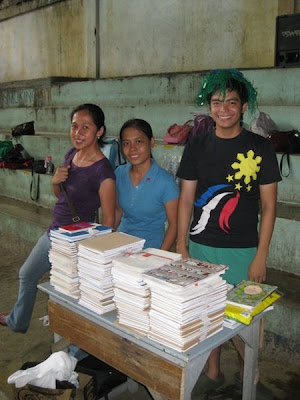Experts to speak at green forum
The organizer of Cebu Business Month (CBM) 2011 has invited experts to discuss environmental issues during the Environmental Business Industry forum recently at Harold’s Hotel Cebu. The environmental forum is one of the highlights of the CBM 2011, organized by the Cebu Chamber of Commerce and Industry (CCCI).
The experts are Edna Gapuz of the Development Academy of the Philippines who discussed waste-to-fuel projects; Maricon Encabo on converting plastic wastes to fuel; Dr. Araceli monsada of the Department of Science and Technology, on green technologies; and Edwin Ortiz of the Carbon Credit Financing Opportunities, who will tackle business opportunities from garbage. CCCI also invited Dr. Musjtaq Memon, Program Officer of the United Nations Environment Programme, who implemented projects on integrated solid waste management in India, Lesotho, People’s Republic of China and Sri Lanka.
The forum is meant to make investors and businessmen realize that garbage can be a source of new materials and should not be overlooked as a potential business opportunity, said Mario Panganiban, CCCI environment committee chairman.
There are many new technologies that businessmen are unaware of. We also hope to convince the public to minimize their wastes due to the closure of the landfill.
The experts are Edna Gapuz of the Development Academy of the Philippines who discussed waste-to-fuel projects; Maricon Encabo on converting plastic wastes to fuel; Dr. Araceli monsada of the Department of Science and Technology, on green technologies; and Edwin Ortiz of the Carbon Credit Financing Opportunities, who will tackle business opportunities from garbage. CCCI also invited Dr. Musjtaq Memon, Program Officer of the United Nations Environment Programme, who implemented projects on integrated solid waste management in India, Lesotho, People’s Republic of China and Sri Lanka.
The forum is meant to make investors and businessmen realize that garbage can be a source of new materials and should not be overlooked as a potential business opportunity, said Mario Panganiban, CCCI environment committee chairman.
There are many new technologies that businessmen are unaware of. We also hope to convince the public to minimize their wastes due to the closure of the landfill.




